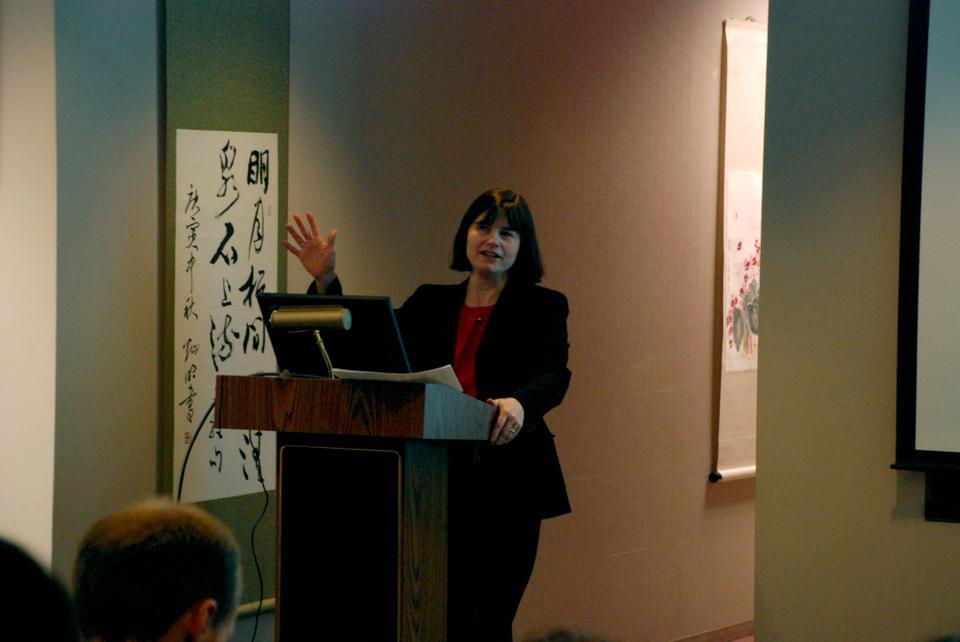
News
Pro-Palestine Encampment Represents First Major Test for Harvard President Alan Garber

News
Israeli PM Benjamin Netanyahu Condemns Antisemitism at U.S. Colleges Amid Encampment at Harvard

News
‘A Joke’: Nikole Hannah-Jones Says Harvard Should Spend More on Legacy of Slavery Initiative

News
Massachusetts ACLU Demands Harvard Reinstate PSC in Letter

News
LIVE UPDATES: Pro-Palestine Protesters Begin Encampment in Harvard Yard
MIT Professor Explores Views on Taxes

Americans form attitudes toward taxes based mostly on rational self-interest, but subjective factors like trust in government and prejudice can play a very significant role, a writer working on a book on the subject argued at a Kennedy School lecture on Wednesday.
Andrea L. Campbell, an associate professor of political science at MIT who is doing research for her book about American attitudes toward taxes over the past several decades, lectured before a full house at the Ash Center for Democratic Governance and Innovation.
Campbell’s talk presented her research and addressed her incentive for pursuing it. “One of my main motivations is how shockingly little work has been done in political science on attitudes toward taxes,” Campbell said.
Campbell found that, predictably, higher taxes elicit more negative attitudes.
But she also presented cases in which irrational concerns like knowledge of the tax system, the design of particular taxes, confidence in government leaders, and even racism influenced citizens’ attitudes. She also highlighted the relative lack of correlation between an individual’s political party identification and his attitude toward taxes. Democrats and Republicans are equally likely to resent income taxes, according to one study that Campbell examined.
In almost all cases, Campbell said, a person will favor a system that benefits him personally rather than one that conforms to views he might hold about tax systems in general.
“Americans are ultimately more apathetic about redistribution than they are about their own tax rates,” Campbell said.
Campbell’s current work is only the most recent chapter in her long-standing interest in the relationship between public policy and public opinion.
“One of Professor Campbell’s main concerns is reversing the causal arrow that is commonly thought to extend from public opinion to policy and looking at how the shape of policy affects public opinion,” said Archon Fung, a Kennedy School professor who introduced Campbell at the event.
In the question and answer session that followed her lecture, Campbell addressed several audience members’ concerns about the surveys she cited to reach her conclusions.
Most of the surveys included questions like, “Do you think income taxes are too high?” or, “Which type of tax do you dislike the most?”
In reference to the second question, Alex Keyssar, a professor at the Kennedy School, said, “If someone asked me that question, my inclination would be to say, ‘What do you mean by that?’” Campbell said that she should address such concerns as she continues research on her book.
Want to keep up with breaking news? Subscribe to our email newsletter.
